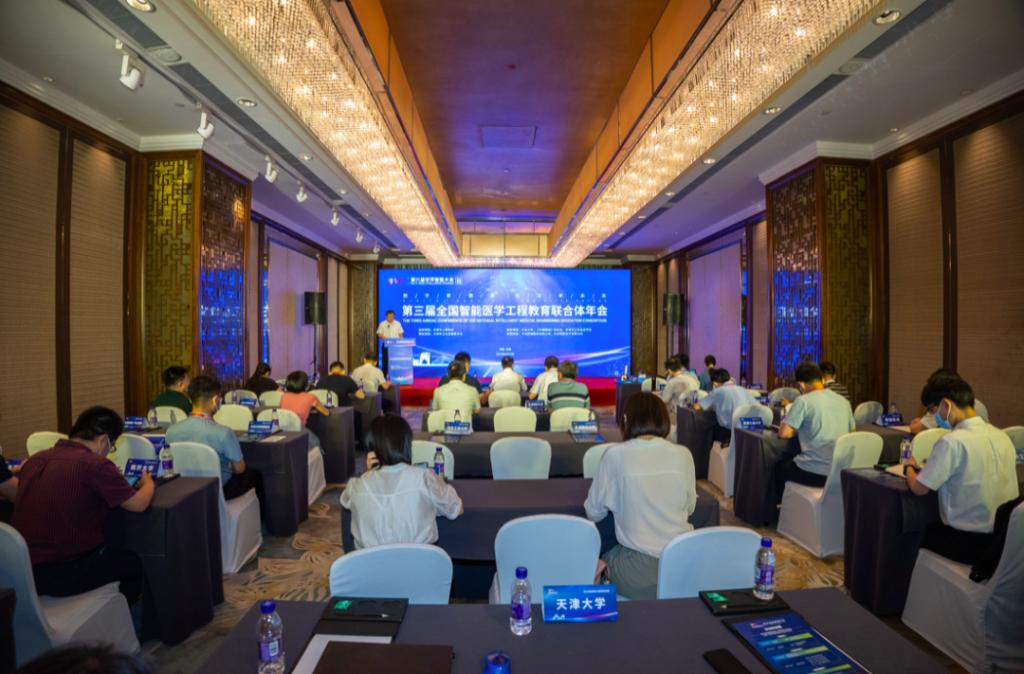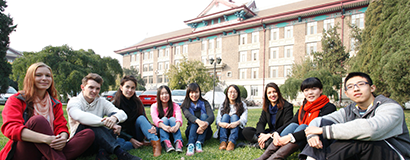On June 24, the Digital Health Summit Forum of the 6thWorld Intelligence Congress and the 3rdAnnual Conference of National Intelligent Medical Engineering (IME) Education Alliance were held in the form of online livestreaming plus offline meetings in Tianjin, bringing together over a hundred leaders of enterprises, academicians, higher education experts and industry representatives from over 80 colleges and universities and 30 Grade-A tertiary hospitals across the country. The “Consensus on the Construction of Intelligent Medical Engineering Discipline” (hereinafter referred to as “TJU Consensus”) was released.

It is reported that 65 domestic colleges and universities have been approved to run IME disciplines for undergraduates since Tianjin University became the pioneer in 2018. In July of the same year, the National IME Education Alliance led by Tianjin University was formally established under the guidance of the Higher Education Department of the Ministry of Education. In line with the “Healthy China” and “Digital China” strategies, the Alliance mobilizes all available resources to explore the direction of development for medical education by innovating the coordination mechanism which involves medicine, education, research and industry and constructing platforms for cooperation on the higher education of new medical disciplines.

The Forum is to find answers to the following questions: how can we adapt the development of medicine to the changes of the times and the defining trends of technological innovation? How can we build IME bases for scientific and technological innovation and designated areas to cultivate outstanding talents in higher education? How can we run disciplines in a more science-based manner to educate students into high-level professionals who are able to keep pace with the development of medical cause for the society? How can we construct the discipline system, academic system, and discourse system of IME with Chinese characteristics? Gu Xiaosong, Academician of the Chinese Academy of Engineering (CAE) and Director of the Medical College of Tianjin University, maintains that the construction of IME in colleges and universities is still facing obstacles such as indistinctive characteristics of disciplines, weak interdisciplinary interaction, and impeded cooperation or communication. He hopes that the Alliance can clarify ideas and contribute wisdom through in-depth discussion.

In the pursuit of intelligence empowering medicine and promoting human well-being, by taking into consideration the discipline connotation, knowledge system and future development of IME and the requirements of the industry, the Alliance focused on the cultivation mode of outstanding medical talents in the new era and reached consensus on five issues, including: (1) the modern medicine has entered the era of intelligence, and the new medical mode and form of industry are taking shape; (2) the demand for talents in emerging industries will promote the integration of “new medical disciplines” and “new engineering disciplines” in medical higher education; (3) IME pioneers the cultivation of “new medical” talents via “Engineering Medicine” in China; (4) the National Intelligent Medical Engineering Education Alliance will be developed into a key organization to formulate and improve quality standards and carry out research, practice and international cooperation concerning the construction of new medical disciplines; (5) the construction of IME disciplines is still faced with challenges, which call for joint efforts from authorities, industries and the whole society.

Gu pointed out that IME represents the development direction of medicine in the future. In such a new field, China is on a par with developed countries in the world and may become the pace-setter after achieving leapfrog development with abundant resources of talents and data. The “TJU Consensus” will offer significant guidelines for the Alliance members to accelerate their discipline construction and the development of “medicine+” mode in the era of artificial intelligence.

Keynote speeches were delivered by four academicians of the CAE, Gu Xiaosong, Zhan Qimin, Zhang Boli and Shang Hong, and representatives from hospitals and enterprises, including Ge Le (Secretary of the Party Committee of Tianjin Huanhu Hospital), Gao Wei (Managing General of China Unicom Medical Base), Li Shifeng (Secretary of the Party Committee and Chairman of CEC Data Service Co., Ltd.), Liao Jieyuan (Founder, Chairman and CEO of WeDoctor), and Ai Xingtao (Managing General of Strategic Cooperation of Elsevier) on topics such as artificial intelligence, the application of digital medicine, health data, modernized traditional Chinese medicine and smart examination to the reform of medical system and the improvement of healthcare service system.

Tianjin Health Commission inaugurated the National Research Institute of Health Data at the Forum, which was prepared for one year based on the support from Tianjin University and other partners, upon the approval by the National Health Commission. Hu Wenping, member of the Standing Committee of the Party Committee and Executive Vice President of Tianjin University, introduced the progress and achievements that the Institute has made in the past and touched upon its development in the future.
By: Li Xiang
Editor: Qin Mian






